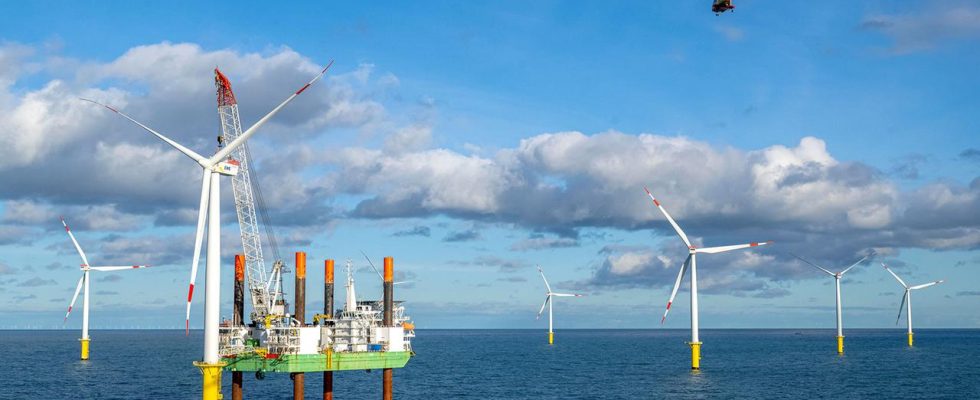The German Federation of Trade Unions is calling on the five northern German coastal states to adopt a common industrial policy for the energy transition. The DGB criticizes the lack of concepts and alliances.
The German Federation of Trade Unions (DGB) is calling on the five northern German coastal states to develop a common industrial policy to promote the energy transition. “We won’t make any progress at this point with small states, especially in times of elbow mentality it’s important to stick together and coordinate in solidarity,” said the chairwoman of the DGB North district, Laura Pooth, to the German Press Agency.
“There used to be a wind energy alliance, which has not been renewed. There is no common concept for the ports, there is no overarching strategy when it comes to the hydrogen terminals,” said Pooth. “So there is still a lot of room for improvement.”
Model region Northern Germany?
Pooth emphasized that the northern German states have the potential to “become a model region that is recognized worldwide when it comes to the energy transition.” However, viewed individually, all five coastal states are significantly smaller than, for example, Baden-Württemberg or Bavaria.
Everyone wants to become the first climate-neutral country, said Pooth. “But it is not enough to describe goals. There is now a lack of concrete steps towards them. The major investments in the future must finally come.” “To convert the industry, which has developed over many years, to climate neutrality in the shortest possible time is a mammoth task.”
Demands also on the federal government
There are also repeated calls from business to accelerate the energy transition. The wind energy industry has demanded more speed from the traffic light coalition when it comes to legislative proposals that make it easier to build and renew wind turbines.
The President of the Federal Wind Energy Association (BWE), Bärbel Heidebroek, recently criticized the fact that the new version of the Federal Immission Control Act to simplify standards has been in the parliamentary process for months and is increasingly being delayed, which is holding up project planning. The procedures for power plant renewal, known as repowering, also need to be simplified.
The traffic light coalition passed a legislative package in 2022 that was intended to drastically accelerate the expansion of renewable energies. For example, the federal states were obliged to make an average of two percent of the area available for onshore wind energy. According to industry information, around 7,000 megawatts of new power was approved last year than ever before.

